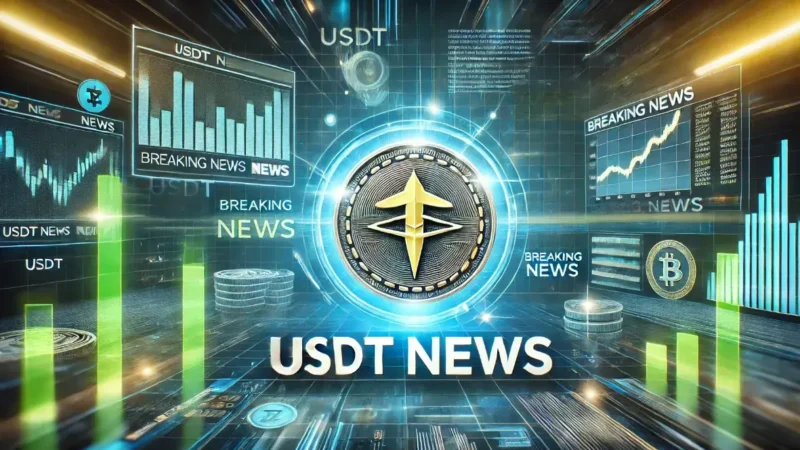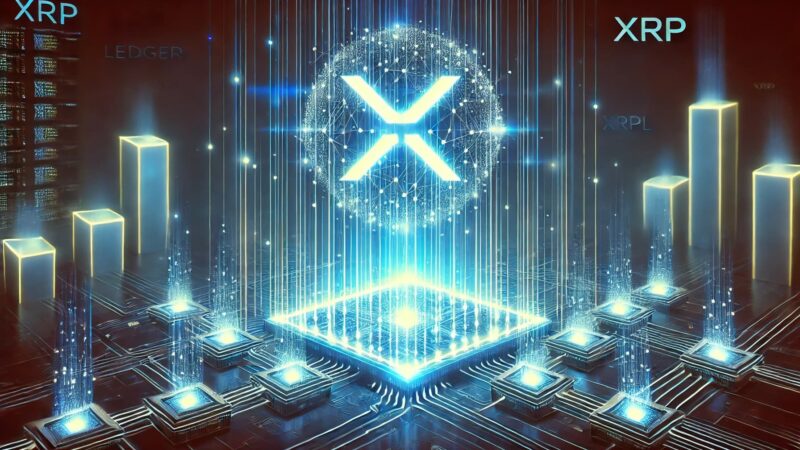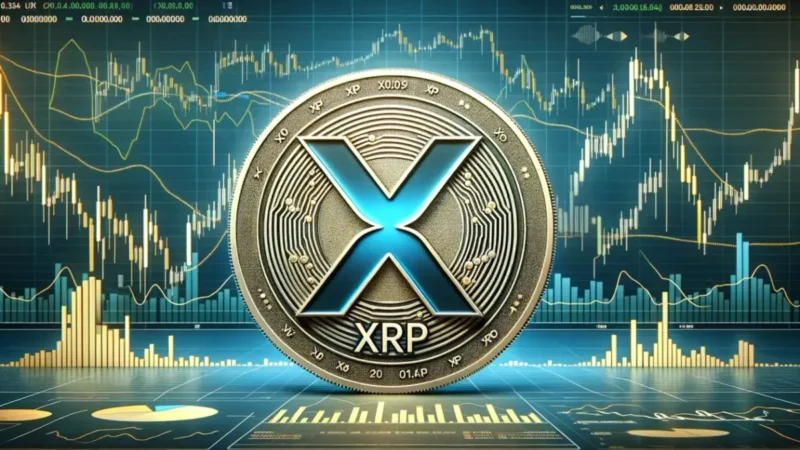Mastering Altcoins: A Basic Guide for the General Public
In the innovative world of cryptocurrencies, beyond the undeniable dominance of Bitcoin, a vast topos of alternative coins, known as altcoins, has burgeoned, contributing to the exciting diversity of the digital currency landscape. While Bitcoin, being the trailblazer, garners copious attention and widespread use, a multitude of other cryptocurrencies, each offering their idiosyncratic functionalities and advantages, present considerable options to prospective investors. This exploration seeks to shed light on the fascinating world of altcoins, starting with an introductory explanation of what altcoins are and how they serve as alternatives to Bitcoin. We’ll delve into the various types of altcoins, their unique characteristics, and use-cases before discussing the potential benefits and risks of investing in these digital assets. A primer on navigating the altcoin market will equip readers with fundamental knowledge of buying, selling, and storing altcoins, paving the way to insights into the future of altcoins, including expert predictions and potential market trends.
What are Altcoins?
Defining Altcoins
Altcoins, short for alternative cryptocurrencies, are digital currencies other than Bitcoin. They were coined as such because they present themselves as improved or alternative versions of Bitcoin. Bitcoin, being the first and pioneering cryptocurrency, ushered in the era of digital currencies based on cryptographic proof instead of trust, changing the landscape of modern economics. However, Bitcoin’s success also highlighted some of its drawbacks, paving the way for the creation of Altcoins.
Justification for Altcoins’ Existence
Altcoins were born primarily out of the need to address Bitcoin’s limitations. The creation of each Altcoin is often justified by its desired functionality or enhancement over Bitcoin. Unlike the monolithic nature of Bitcoin, Altcoins feature innovative blockchain systems that promise to provide solutions to issues such as transaction speed, decentralization, proof-of-stake, even privacy concerns. For instance, Litecoin, one of the first Altcoins, was created with the goal of processing transactions faster than Bitcoin.
Altcoins’ Role in the Cryptocurrency Market
Altcoins play a pivotal role in the cryptocurrency market. Representing the vast majority of cryptocurrencies available today, they provide investors with versatile and abundant options. Investors are attracted to particular Altcoins for various reasons: some are drawn by faster transaction speeds, others by the degree of anonymity they offer, and still others by their ties to evolving technology sectors such as smart contracts or decentralized finance. This diversity of choice and competition among Altcoins not only stirs market activity but also fosters technological advancements in the field of cryptocurrency.
Value of Altcoins
Much like Bitcoin, the value of Altcoins is derived from the trust its users put in its underlying technology and its potential usefulness. The price of an Altcoin is not related to a physical asset but instead fluctuates primarily based on market demand. Some Altcoins have garnered significant interest, reaching high valuations and challenging Bitcoin’s dominance. Ethereum, for example, has been recognized for its smart contract capabilities and, on occasion, threatened Bitcoin’s supremacy in the cryptocurrency market.
Understanding the Challenges and Risks of Altcoins
Investing in Altcoins presents exciting prospects, given the technological advancements and the possibility of high returns. However, these cryptocurrencies carry certain risks and criticisms. One significant concern is their relative instability – numerous Altcoins have extinguished or failed since they first emerged. Furthermore, the lure of instantaneous and substantial profits has enabled the spread of deceptive practices and fraudulent schemes within the Altcoins market. Given these risks, prospective investors need to perform comprehensive due diligence and exercise caution when considering investments in Altcoins.
Types of Altcoins
Delving Deeper into Mining-Based Altcoins
If you’re considering dipping your toes into the world of Altcoins, mining-based cryptocurrencies could be a viable starting point. This specific type of Altcoin utilizes a process called ‘mining‘. This process engages cryptocurrency miners to solve intricate mathematical equations to approve transactions and secure the network. Well-known cryptocurrencies such as Bitcoin, Litecoin, and Ethereum fall under the umbrella of mining-based Altcoins. The prospect of earning new coins often acts as an incentive to mine these Altcoins. However, the profitability of this endeavor can fluctuate and is subject to elements such as the Altcoin’s current market value and the complexity of the mathematical problems to be solved.
Stablecoins
Stablecoins are alternative cryptocurrencies designed to minimize the volatility of the price of the stablecoin, relative to a certain “stable” asset or a pool of assets. They are often pegged to traditional fiat currencies like the US Dollar, Euro, or Gold. Tether (USDT) and USD Coin (USDC) are widely recognized examples of stablecoins. This type of altcoin can offer the benefits of cryptocurrency—like the convenience for digital transactions, while aiming to offer price stability, making it practical for everyday use, functioning as a medium of exchange, and store of value.
Security Tokens
Security Tokens are a type of altcoin that fall within the realm of security under the federal laws. They are essentially digital, liquid contracts for fractions of any asset that already has value, from real estate to traditional shares in a company. Security tokens can also represent a share in a company and entitle the holder to voting rights. They are subject to federal laws that govern securities, protecting investors from fraud. One example of security tokens is Polymath (POLY), a platform that provides a suite of tools to create, issue and manage security tokens.
Utility Tokens
Unlike Security Tokens, Utility Tokens are not created to be an investment. Instead, they provide users with future access to a product or service. These tokens can act as a ticket, or a pass, giving holders a chance to use the network once it is completed. Some well-known Utility Tokens include Ethereum (ETH) and Binance Coin (BNB). Utility Tokens are primarily used to raise funds during Initial Coin Offerings (ICOs), but their use extends to an array of applications within the platform or ecosystem they are designed for. They offer the promise of being able to interact with the native blockchain in various ways.
Exploring the world of cryptocurrency unveils a vast field of possibilities with four different types of altcoins – mining-based, stablecoins, security tokens and utility tokens. These varied kinds offer users unique opportunities and challenges. It’s important to note that their value, stability and applications can differ significantly, thereby presenting an extensive landscape of probabilities in the cryptocurrency domain.
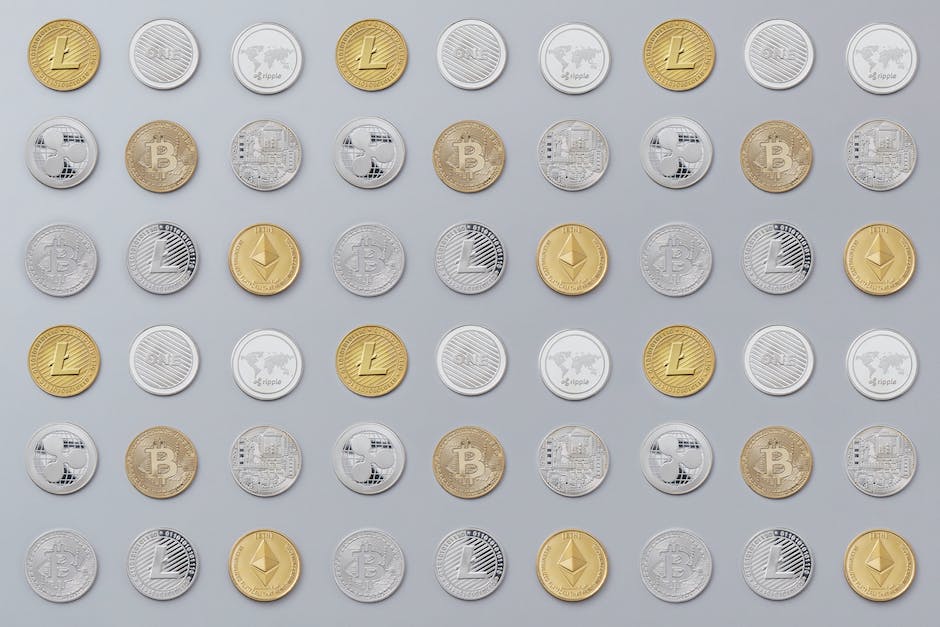
Pros and Cons of Investing in Altcoins
A Venue for High Returns and Substantial Profits
Altcoins, an alternate digital currency avenue to the well-known Bitcoin, can offer significant financial gains to those who seize the opportunity to invest. To illustrate, Bitcoin itself, started with a value of less than one cent at its inception, now floats around a staggering $50,000. But it’s not all about Bitcoin; other altcoins like Ethereum and Litecoin experienced substantial growth, providing considerable returns to those who invested early. Surpassing traditional investment platforms such as stocks and bonds, these altcoins often present a higher return on investment.
Future Prospects
With the world increasingly shifting towards a digital economy, the use of cryptocurrencies is expected to grow. As more businesses start accepting cryptocurrencies and more investors flock to the crypto market, the value of altcoins could potentially soar. Projected advancements in blockchain technology also imply a bright future for altcoins. This continuous growth and adaptation signify a promising future, adding allure to altcoin investment.
Protection Against Inflation
In times of economic uncertainty, cryptocurrencies have been seen by some as a hedge against inflation. As central banks print more money, the value of traditional currencies tends to drop. However, most altcoins have a capped supply, which protects them from inflation.
Market Volatility
Despite the potential high returns, the altcoin market is highly volatile. Altcoin prices can fluctify wildly within a matter of hours. For instance, in early 2018, the entire cryptocurrency market lost about $100 billion in value over a single day. Such volatility can lead to considerable losses, especially for those who invest without understanding the market dynamics.
Risks of Scams and Frauds
Just like any other investment opportunity, the altcoin market comes with its fair share of risks. It has been rife with scams and frauds. One infamous example is the Bitconnect scam where investors were promised exceptionally high returns and ended up losing millions of dollars when the project turned out to be a Ponzi scheme. Therefore, it’s crucial to do proper research before venturing into any altcoin investment.
Liquidity Issues
Unlike Bitcoin, which can be easily sold for cash on numerous exchanges, some altcoins might not be readily convertible to cash due to their lower demand. These altcoins might not be listed on major exchanges, which can lead to liquidity issues. Essentially, you could end up holding coins that nobody wants to buy.
Regulatory Uncertainty
The regulatory environment for altcoins is uncertain and varies greatly from one country to another. Some governments have embraced cryptocurrencies, while others have outright banned them. These regulatory uncertainties can greatly affect the value of altcoins and pose a potential risk for investors.
When journeying into the landscape of altcoin investing, understanding that profit is achievable but far from guaranteed is crucial. The key to making well-informed investment decisions lies in carefully studying the risks involved, gaining an in-depth understanding of the asset in question, and assessing your own tolerance for financial risk.

Navigating the Altcoin Market
Diving Deeper into Altcoins
Known as alternative coins or ‘altcoins’ for short, these digital currencies present themselves as different versions or alternatives to Bitcoin, the pioneering crypto-currency. Following Bitcoin’s success, these altcoins emerged, based on the original’s groundbreaking technology but often incorporating their own unique modifications and enhancements. Currently, there exists a myriad of these alternative coins, each boasting individual features and purposes.
Getting Started with Altcoins
To start with altcoins, you first need a place to buy and sell them. This is usually done on a cryptocurrency exchange, which functions much like a regular stock exchange. These exchanges allow users to trade altcoins for other crypto-assets, like Bitcoin, or for real-world money, such as U.S. dollars or euros.
Some popular crypto-exchanges dedicated to altcoins include Binance, GDAX, and Kraken. These platforms differ in their fees, security measures, and the sorts of altcoins they support, so it’s essential to do your research to pick the one best suited for your needs.
Altcoin Wallets
Just like physical money, digital coins also need somewhere to be stored. For this, there are digital wallets specially designed to store crypto-currencies. These wallets can either exist as software on your computer or mobile device, or as a physical hardware device.
Digital wallets provide addresses for receiving coins and also allow one to send coins to other addresses. Most altcoin wallets also have various security features, like encryption and backup mechanisms. It is necessary to take the proper precautions to protect your wallet from hacking threats and to prevent loss of your coins.
Investing in Altcoins
Investing in altcoins is much like investing in any other commodity. It requires understanding of the market, a good amount of research, and a willingness to take risks. One needs to watch the market trends carefully, keeping an eye on news that might affect the price and popularity of various coins.
Remember to diversify your investments. Given that there are thousands of altcoins, putting your eggs in different baskets may lower risk. It is also advisable to only invest money that you’re willing to lose, as the value of these currencies can be highly volatile.
Lastly, scammers are another concern in the cryptocurrency world. Double-check everything before making purchases and be skeptical of deals that seem too good to be true. Reading about crypto-scams and keeping an eye out for warning signs can save you from a loss.
Understanding Altcoins
Delving into the world of altcoins might initially seem overwhelming due to its intricate nature. However, gaining a basic understanding of the underlying structures can aid newcomers in navigating this novel market. The journey within the altcoin market generally involves self-education on various crypto-exchanges, acquainting yourself with the workings of digital wallets, and making informed decisions about which coins to buy, sell, and hold. The path may be fraught with uncertainties yet it is also a gateway to substantial prospects.

Predictions and Projections for Altcoins
Altcoin Predictions
In the vast landscape of cryptocurrencies, one topic that sparks curiosity among investors and technologists alike is altcoins – digital currencies that exist as alternatives to Bitcoin. Predictions regarding their future are abundant, made by various experts in this space.
A common theme in these predictions is the anticipated continuous growth and diversification of altcoins. When Bitcoin was initially launched, it was a pioneer in its field. Presently, the market boasts over 4,000 distinctive altcoins, each with unique features and advantages. Some are tailored to cater to specific sectors, some pride themselves on their technological advancement, while others exist as slight variations of Bitcoin. As developments in blockchain technology continue, we can expect the roster of altcoins to expand correspondingly.
Possible Altcoin Market Trends
A predicted trend in the altcoin market is the substantial role of regulatory bodies. As cryptocurrencies start to become mainstream, more government entities around the world are beginning to take an interest in this area. The implications of these regulations could have a significant impact on the growth and acceptability of altcoins. For instance, regulations that validate the use of cryptocurrencies can lead to a surge in altcoin adoption, whereas restrictive regulations can send potential investors running.
One more anticipated trend is the growth of altcoins that offer unique features. Bitcoin’s technology is a bit dated compared to many of its younger counterparts, and coins that offer enhancements – such as improved scalability, increased privacy, or energy-efficient mining methods – will likely stand out in the ever-growing altcoin crowd.
Altcoins’ Potential Technological Advancements
Looking ahead, one can also see a myriad of potential tech advancements for altcoins. As engineers continue to build upon blockchain technology, altcoins will also benefit from these updates and improvements to their existing systems.
The applications that sit atop these blockchains – known as decentralized apps, or “dapps” – will also mature along with the underpinning technology. This suggests that the utility and usability of altcoins could vastly improve.
In addition, the influence of quantum computing is an expected technological advancement in the world of altcoins. If quantum computers become mainstream, they could potentially crack the cryptographic algorithms that currently secure blockchain networks. Altcoins will need to anticipate this possibility and develop future-proof cryptographic standards.
Conclusion
As these predictions suggest, the future of altcoins holds both intrigue and uncertainty. The continuous advancements in technology combined with the ever-evolving regulatory landscape makes the altcoin market full of potential ups and downs. However, for investors and technology enthusiasts, the possibilities that lie ahead could be the next big revolution in digital currency.
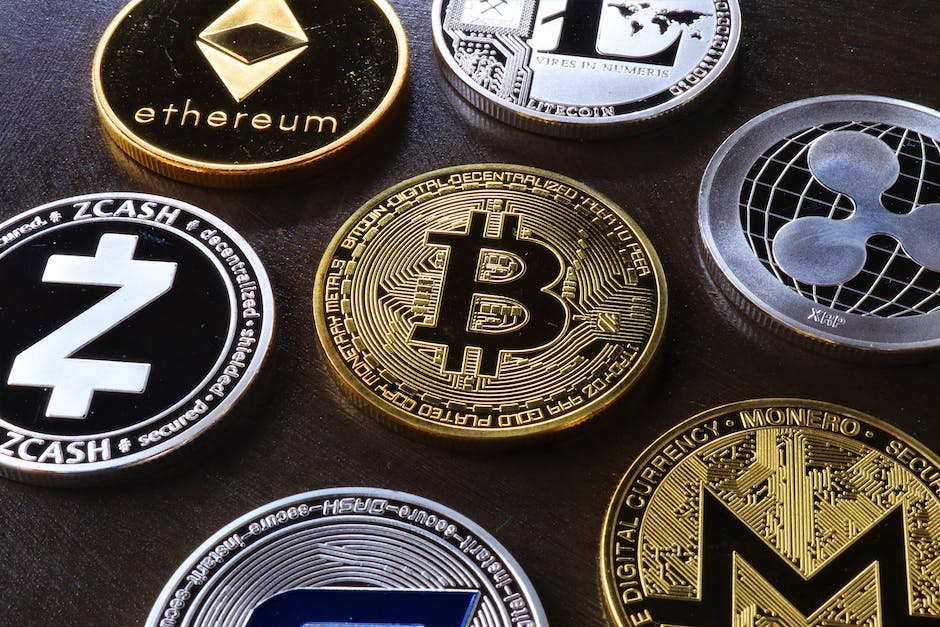
In navigating the complex and ever-evolving world of altcoins, it’s essential to be equipped with a comprehensive understanding of the underlying types, the prospective rewards and challenges, and strategies on making informed and strategic investment decisions. Our exploration has provided a foundation of knowledge, ranging from the introductory nature of altcoins, their various types, potential advantages and risks of investment, to essentials of entering the altcoin market. With the predictions and prospects for altcoins also touched upon, it is clear that this exciting sphere of cryptocurrency exhibits not only potential for individual profitability, but also the capacity to drive technological advancements and foster a nuanced understanding of our digital financial future. As the world continues to unravel the intricacies of cryptocurrencies, staying informed about altcoins could prove invaluable in the broader context of financial literacy and economic potential.
